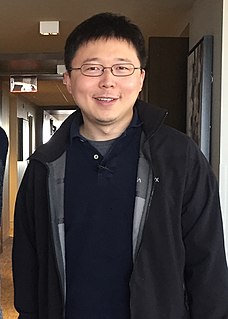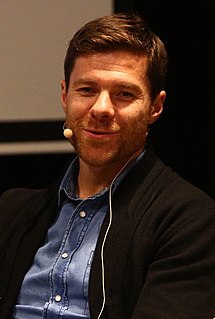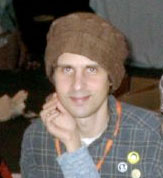A Quote by Paul Allen
We know a certain amount about neurons. You can do fMRI and watch parts of the brain light up. But what happens in the middle is poorly understood.
Related Quotes
The brain is the most complicated organ in the universe. We have learned a lot about other human organs. We know how the heart pumps and how the kidney does what it does. To a certain degree, we have read the letters of the human genome. But the brain has 100 billion neurons. Each one of those has about 10,000 connections.
Unlike the heart or kidney, which have a small, defined set of cell types, we still do not have a taxonomy of neurons, and neuroscientists still argue whether specific types of neurons are unique to humans. But there is no disputing that neurons are only about 10 percent of the cells in the human brain.
There are 100 billion neurons in the adult human brain, and each neuron makes something like 1,000 to 10,000 contacts with other neurons in the brain. Based on this, people have calculated that the number of permutations and combinations of brain activity exceeds the number of elementary particles in the universe.
There have been studies done on people who meditate and they have found that they actually have increased grey matter in certain parts of their brain and more neural conductivity, meaning more connections between certain parts of the brain. They have increased capacity for, in some cases, memory, or reasoning.
Once again you are wrong sir, darkness does not exist either. Darkness is in reality the absence of light. Light we can study, but not darkness. In fact we can use Newton's prism to break white light into many colors and study the various wavelengths of each color. You cannot measure darkness. A simple ray of light can break into a world of darkness and illuminate it. How can you know how dark a certain space is? You measure the amount of light present. Isn't this correct? Darkness is a term used by man to describe what happens when there is no light present.
Most brain scientists have not taught 4th grade, and don't know very much about the classroom, even though they might study learning in some detail. Most education professionals, who often know a tremendous amount about the classroom, don't know much about the brain. That is one of the reasons why I am so skeptical about applying brain findings to the classroom.
Through my life and my experience, I believe getting "positive mental attitude" is true. Your brain has certain pathways in it, and if you feed those pathways with certain types of thoughts, the blood goes to those neurons and nourishes them, and they grow and develop. That's how you build habits. Physically, I think that's how your brain works. If you have certain habits that are negative and causing you problems that you want to change them, you can actually change the blood flow and stuff in your brain by thinking a different way.



































